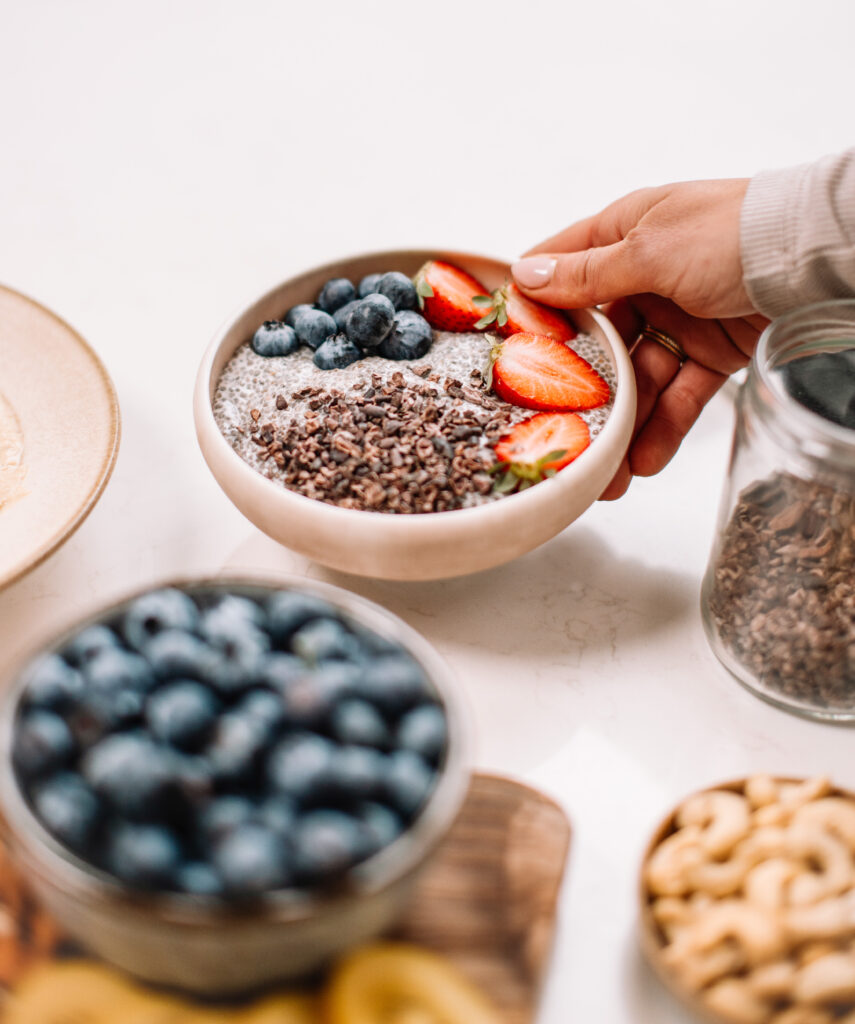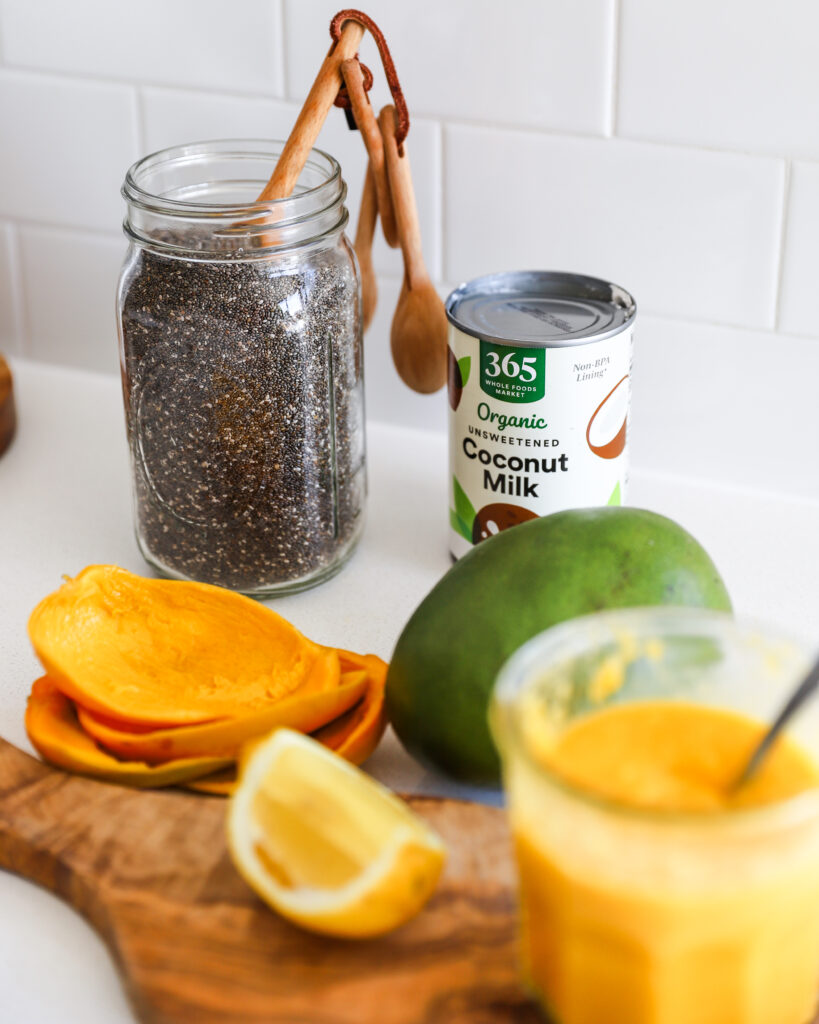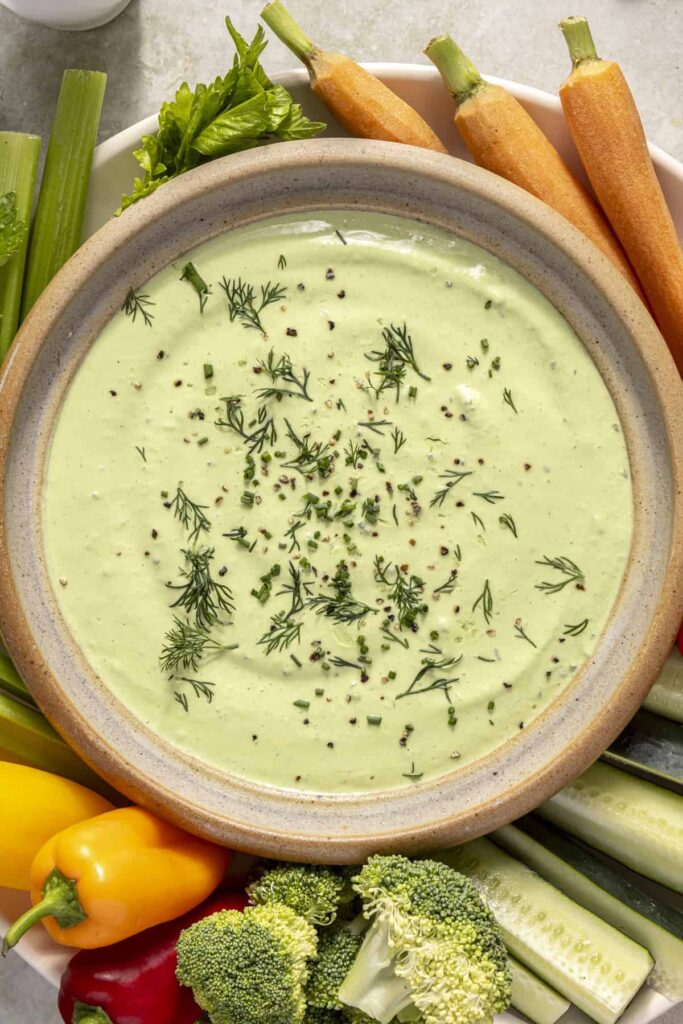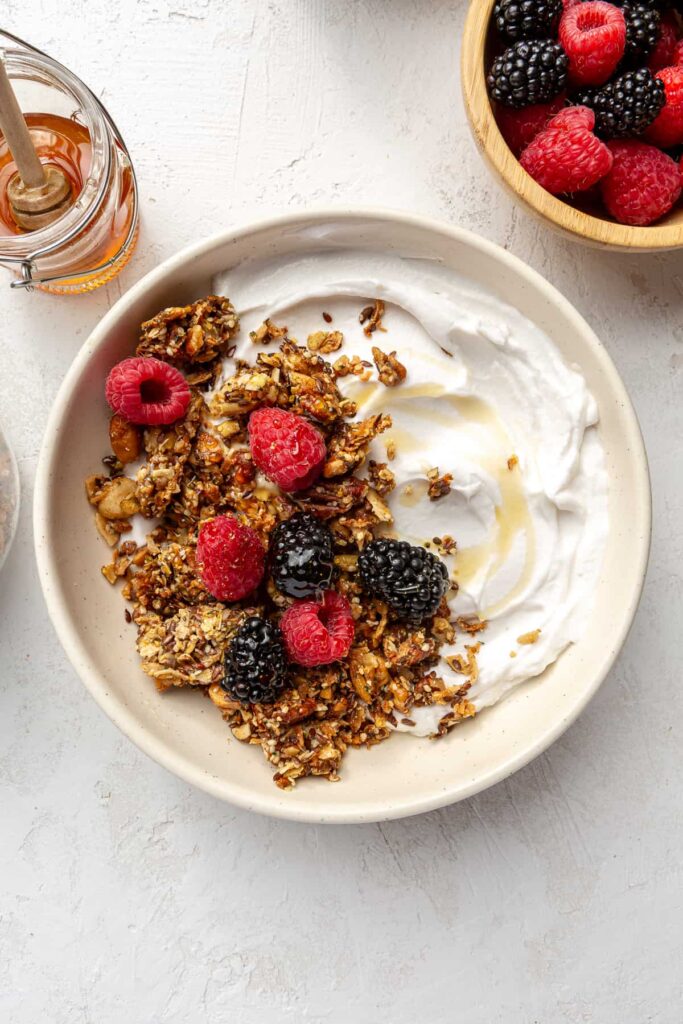
Gut health plays a huge role in how we feel every day — from digestion and immune function to energy levels, mood, and even skin clarity. The good news? You don’t need expensive supplements to support your gut microbiome. Small, consistent daily gut health habits can go a long way in helping your gut thrive.
As a registered dietitian, I’ve talked about gut health on the blog before, but this time I’m approaching it a little differently — with five simple, natural tips to support digestion, boost energy, and promote overall wellness.
1. Prioritize Fiber-Rich Foods
One of the most powerful ways to support a healthy gut is eating more fiber. Fiber acts as food for the beneficial bacteria in your gut, helping them grow and thrive. It also supports digestion, promotes regularity, and keeps things moving through your digestive tract. (Source: Harvard Health)
Aim to get a mix of soluble and insoluble fiber from real, whole foods like fruits, vegetables, legumes, whole grains, chia seeds, and flaxseeds. Most adults should aim for 25–30 grams of fiber per day—enough to support gut bacteria and keep digestion running smoothly, without gas or bloating. (Source: UCSF Health)
- Read more about Why Fiber is Essential for Gut Health, or try recipes like my Coconut Mango Chia Pudding or Berry Oatmeal Protein Muffins (High-Protein & Gluten-Free) to boost your fiber intake naturally.
2. Stay Hydrated
Hydration and gut health go hand in hand. Water helps break down food, move fiber through your digestive system, and prevent constipation. Without enough fluids, your digestion can slow down — even if you’re eating plenty of fiber. (Source: Harvard Health)
In addition to water, you can stay hydrated with water-rich foods like cucumbers, citrus, berries, and watermelon. I also love starting the day with water and electrolytes, especially in the summer or after workouts.
- Herbal teas or fruit-infused water are great options if you’re looking to mix things up. Or, try my Viral Watermelon Salad — it’s so fresh!
3. Manage Stress Daily
Your gut and brain are deeply connected. When you’re under chronic stress, it can disrupt digestion, impact your microbiome, and lead to symptoms like bloating or discomfort. (Source: PubMed)
Building simple daily habits to reduce stress can make a big difference. Think: a walk outside, breathwork, screen breaks, short workouts, or even a few minutes of quiet time. What’s good for your mental health is often good for your gut too. You know how the saying goes: movement is medicine!
- If you need help getting started, try any of my fitness guides for pre-programmed, effective workouts you’ll love—there’s something for everyone!

4. Eat Slowly and Mindfully
It’s easy to overlook how you eat — not just what you eat. But slowing down at mealtime and chewing thoroughly gives your digestive system a chance to do its job properly, which can help reduce bloating, gas, and discomfort.
Try these simple habits:
- Sit down to eat without distractions
- Put your phone away
- Chew each bite 15–20 times
I know these are way easier said than done, but give them a try as often as you can and see how you feel. Slowing down also gives your body time to register fullness, which can support portion control and help reduce mindless snacking.
5. Include Fermented Foods Regularly
Fermented foods are rich in natural probiotics—the live, beneficial bacteria that help keep your gut microbiome balanced. Adding these foods to your diet regularly can support digestion, enhance immunity, and even boost mood. (Source: MDPI)
Some of the most probiotic-rich foods include:
- Yogurt or kefir (look for “live active cultures” on the label)
- Sauerkraut
- Kimchi
- Miso
- Tempeh
Especially after taking antibiotics—which clear out both good and bad gut bacteria—it’s helpful to replenish with probiotic-rich foods.
Supplements can be helpful in certain cases, but if you’re consistently eating fermented foods and fiber, you may not need them at all.

One More Thing: Make Sleep a Priority
Sleep may not seem directly related to gut health, but research shows a strong connection between circadian rhythm and your gut microbiome. Poor sleep—or irregular sleep schedules—can disrupt digestion, weaken immune function, and even impact food cravings the next day. (Source: PubMed)
Aim for 7–9 hours of quality sleep each night — your gut will thank you.
Build Habits That Stick
At the end of the day, you don’t need a full lifestyle overhaul to support gut health. Do what works for you! By focusing on small, sustainable habits — like eating more fiber, staying hydrated, managing stress, and including fermented foods — you can make a big difference in your digestion, energy, mood, and overall well-being.
Gut health isn’t about perfection — it’s about consistency. Tune in to what makes you feel your best, and take it one day at a time.
Sources:
- “The Facts on Fiber” — Harvard Health (Harvard Health Publishing)
- “Increasing Fiber Intake” — UCSF Health (University of California San Francisco Health)
- “5 Simple Ways to Improve Gut Health” — Harvard Health (Harvard Health Publishing)
- Stress, depression, diet, and the gut microbiota: human–bacteria interactions at the core of psychoneuroimmunology and nutrition — PubMed (National Library of Medicine)
- Unraveling the Puzzle: Health Benefits of Probiotics—A Comprehensive Review (MDPI)
- Sleep, circadian rhythm, and gut microbiota — PubMed (National Library of Medicine)
Find more of my Nutrition Tips HERE on the blog.
























Comments